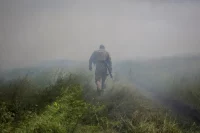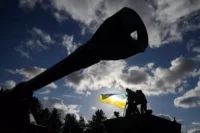Why NATO Needs Ukraine
As the second anniversary of Russia’s invasion of Ukraine draws near, Kyiv’s allies are struggling to articulate a common vision for the long-term security of Ukraine and of Europe. The invasion, and the Ukrainian people’s subsequent courageous resistance, appeared to be a watershed moment for the transatlantic alliance—underscoring its value and illuminating Ukraine’s importance to Europe. NATO mobilized troops to its eastern flank, Europe and the United States offered Kyiv unprecedented aid, and Europeans stepped up to host millions of Ukrainian refugees.
But two years later, both the shock prompted by Russian President Vladimir Putin’s aggression and the awe at Ukraine’s fighting spirit seem to have worn off.… Seguir leyendo »






